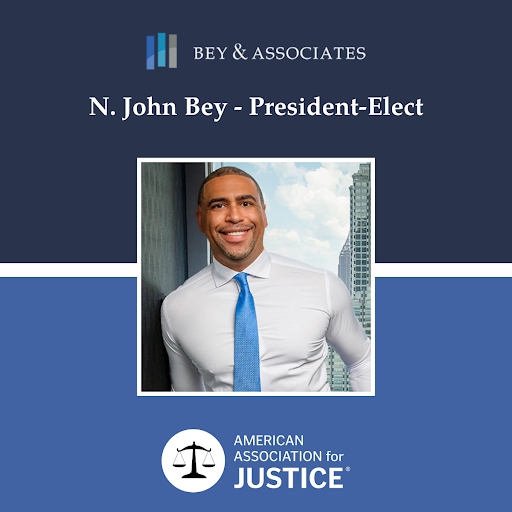How Often Are Security Guards Negligent?
Security professionals like guards, bouncers, and security officers are responsible for ensuring the safety of an area. Their duties usually include important tasks like patrolling, limiting access to an area, checking identification, appropriately handling dangerous situations, and reporting potential risks. As security officers, the safety of countless people rests in their hands.
But how often are security guards negligent? Security professionals who fail to uphold the duties of their job title put thousands of lives at risk. When bouncers and security guards are negligent, preventable instances of violence can ensue, such as:
- Gun violence
- Assault
- Rape
- Physical violence between individuals
- Theft
- Muggings
- Knife violence
- The use of explosive devices
Even situations that are considered more minor in severity—like underage drinking, climbing on unsafe equipment, or property vandalism—can cause serious injury when security does not take measures to prevent and deescalate them.
That’s where negligent security law comes in. An employer of negligent security guards may be held liable for injuries or fatalities that occur on a poorly-secured property. If you were injured or lost a loved one in this type of incident in the Atlanta metropolitan area, an attorney from Bey & Associates can walk you through the legal options that may be available.
The Role of Security Professionals in Atlanta
Security guards have an important set of responsibilities. No matter the type of facility that employs them, their job is to keep people safe—under all manner of conditions, potential dangers, and emergencies. The role of a security officer is essentially two-fold. They must work to both avert dangerous situations and effectively handle them when they arise.
Bouncers, guards, and other security professionals are a familiar sight at many establishments in and around Atlanta. They are routinely hired by businesses and organizations such as:
- Stadiums and sports arenas
- Large event venues
- Malls and shopping centers
- Schools, universities, and daycares
- Hospitals, nursing homes, and other health care facilities
- Bars and restaurants
- Nightclubs
- Retail shops
- Apartments and residential communities
- Community centers
- Office buildings
- Religious centers and places of worship
- Gyms and fitness facilities
What Are Examples of Security Guard Negligence?
Negligence, in personal injury law, means a person fails in their duty to act in a way that does not endanger others. Security guards, due to the nature of their job, have a higher duty to protect others than the average person. If a professional security officer is negligent, the resulting consequences can be much more serious.
That’s why Georgia law takes negligent security cases so seriously. Events of widespread harm are often only allowed to happen when security is lax, untrained, insufficient, careless, or willfully permissive of dangerous behaviors.
The following are just a few examples of actions or omissions that could be considered security guard negligence. An experienced negligent security lawyer will need to review the details of your specific case to determine whether you have grounds for civil legal action.
Negligence may be if a security guard:
- Does not properly check the identification of incoming visitors
- Does not respond to a call for help
- Does not conduct bag checks, metal scans, or other necessary check-in protocol at an event
- Sees an argument escalating and fails to act to prevent a fight from breaking out
- Leaves their post to smoke, eat, answer a phone call, or attend to another personal matter while on duty
- Falls asleep on the job
- Aggressively mishandles a patron, customer, or visitor in a way that injures them
- Allows friends or others to enter an area without the required authorization
- Is distracted by texting or watching videos when they should be monitoring a situation
- Does not notice the warning signs of a potentially violent situation
- Does not take adequate precautions against a known potential threat
In some cases, negligence may not be the fault of the security officers themselves. When an employer neglects to provide guards and bouncers with the resources they need to keep people safe, they are not able to effectively fulfill their duties.
Negligent security can also come from situations in which employers:
- Do not employ enough security guards to meet the needs of the facility
- Do not conduct adequate background checks before hiring new bouncers or guards
- Do not train security staff on the safety measures and procedures required of them
- Do not equip security professionals with the equipment and safety gear they need
- Do not invest in security cameras, lighting fixtures, metal detectors, modes of transportation, communication devices, and other technology necessary for public safety
What To Do if Security Guard Negligence Results in Injuries
While we don’t know exactly how often security guards are negligent, we do know that thousands of people are injured every year due to negligent security practices. If you or someone you love was harmed because premises were not kept safe, you have legal paths to recovery.
You may be able to file a lawsuit against the at-fault party, allowing you to recover financial compensation for damages like medical bills, lost wages, pain and suffering, emotional trauma, or wrongful death benefits after a preventable loss.
From a legal standpoint, situations involving negligent security guards are complicated. There could be multiple liable parties in a single incident—including the security guard or guards themselves, the facility that employed them, or the professional security agency that hired them out to work an event.
Your legal counsel from Bey & Associates will thoroughly investigate the incident that caused your suffering to determine where liability falls. From there, we will devote our sharpest efforts to seeing that you obtain justice.
The role of a security guard demands that there is no room for negligence. If a negligent guard or bouncer failed in the duty for which they were hired, you have the legal right to stand up and hold them accountable.



